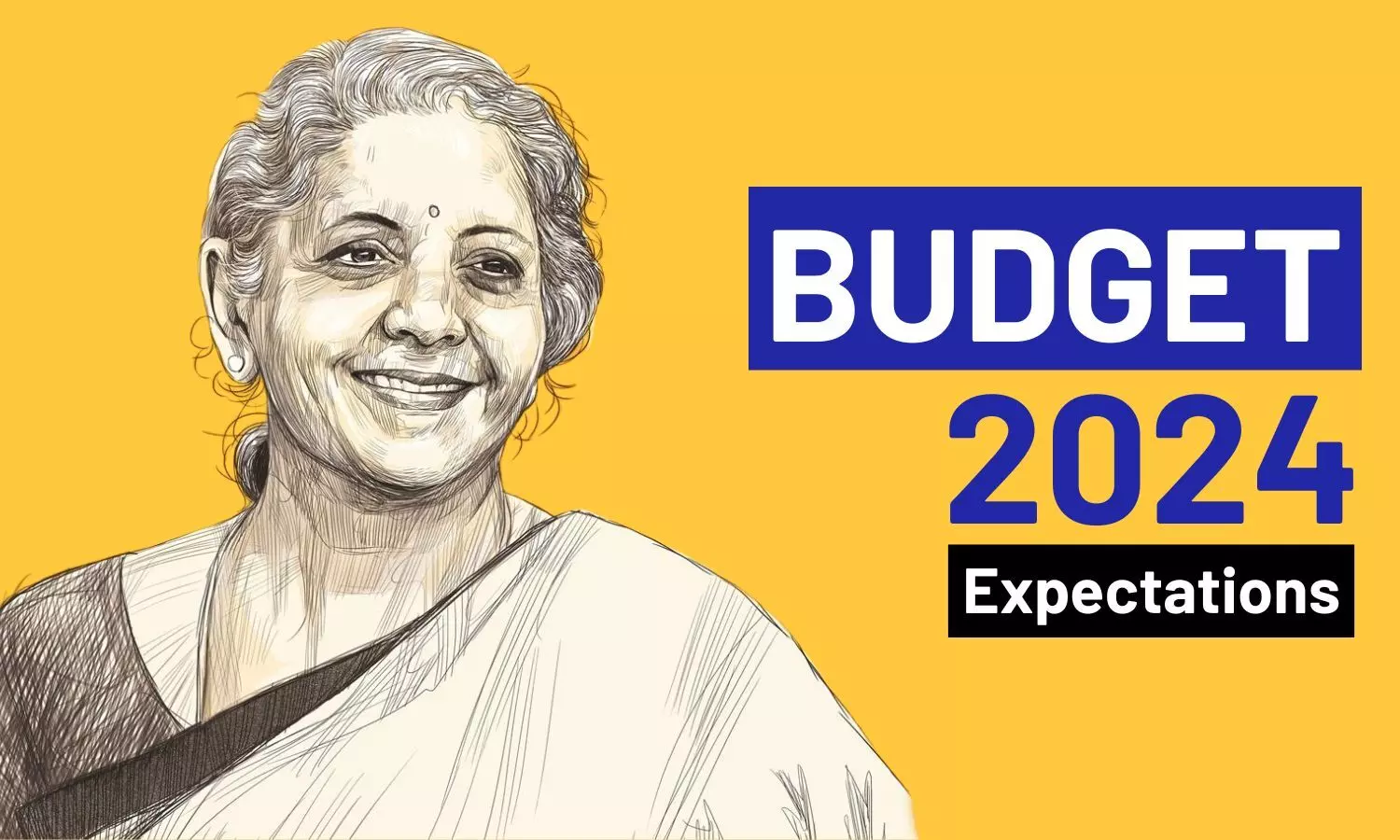Budget 2024 Expectations: Will it Fetch Housing Sector Tax Relief?
Given its importance, it's no surprise that the real estate industry eagerly awaits the Union Budget each year. With the Union Budget 2024-25 set to be presented in July, the real estate sector places renewed faith in the Modi 3.0 regime.
image for illustrative purpose

The real estate industry in India holds significant prominence due to various factors. With the increasing demand for housing, there is a necessity for additional residential, office, and commercial properties. Real estate development meets this demand and influences the landscape of our urban areas. Due to its significance, it is not surprising that the real estate industry eagerly anticipates the Union Budget on an annual basis. The sector is optimistic about the upcoming Union Budget 2024-25, scheduled to be presented in July by the finance minister.
The budget may introduce modifications to taxation regulations regarding property acquisitions, allowances for mortgage loans, or infrastructure initiatives that could potentially affect the development of real estate.
Budget 2024 housing sector expectations
According to experts, there is a strong anticipation for tax reliefs and other measures to boost public sentiment. They also emphasise that the future of the industry as a whole relies on unimpeded infrastructure development to enhance urban living standards and promote the growth of new areas.
Industry status budget expectations
The real estate sector's long-standing demand for "industry status" is also emphasised by experts. The budget is also the focus of other aspirations, too. Experts are optimistic that the affordable housing segment, which has been experiencing a consistent decline since the pandemic, will be revitalised through the implementation of "real" measures.
The Indian housing sector has sustained a positive outlook throughout 2024, with the top seven cities witnessing new peaks in housing sales and new launches. In FY 23-24, sales peaked at approximately 4.93 lakh units, and 4.47 lakh units were introduced. Nevertheless, this momentum must persist in the future, and the current growth trajectory is skewed towards mid-range and premium housing.
This momentum cannot be sustained solely on the basis of higher-priced homes, as affordable housing continues to deteriorate in light of the unique housing requirements of India's lower-income groups. The sales share of affordable housing experienced a substantial decline following the COVID-19 pandemic. It decreased from over 26% in 2022 and over 38% in 2019 to approximately 20% in Q1 2024, according to research. This segment's proportion of the total housing supply in the top 7 cities, which was nearly 40% in 2019, decreased to 18% in Q1 2024 as a result of low demand.
In the past two years, numerous interest stimulants previously granted to buyers and developers of affordable housing have expired. This crucial segment necessitates the implementation of high-impact measures, such as tax breaks, to encourage developers to prioritise affordable housing and enhance affordability for buyers.
Additional measures to revitalise affordable housing include:
1. Credit-linked subsidy programme under the PMAY
To encourage first-time buyers of affordable homes in cities, this EWS/LIG scheme, which expired in 2022, should be reinstated to stimulate demand in this sector. Earlier, CLSS was available for housing loans to EWS/LIG buyers in new constructions and addition of rooms, kitchens, toilets, and other amenities to existing dwellings, subject to the criteria specified in government guidelines.
Additionally, this subsidy is available for all 'kaccha' homes that are being converted into 'pucca' homes under PMAY (Rural), provided that they meet the eligibility requirements.
2. Reintroduce a 100% tax holiday for developers of affordable housing.
In an effort to increase the supply of housing and encourage developers to construct more affordable units, the government may reinstate the "100% Tax Holiday" benefit that was previously granted to them under Section 80-IBA of the Finance Act, 2016. This section grants major tax relief to the profits generated by the development and construction of affordable housing projects.
3. Modify the definition of affordable housing to extend the benefits of additional deductions to a broader range of buyers.
Affordable housing is defined by the Ministry of Housing and Urban Poverty Alleviation in accordance with the size of the property, the price, and the income of the buyer. For instance, affordable housing is a house or flat with a carpet area of up to 90 sq. m. in non-metropolitan cities and towns and 60 sq. m. in major cities, with a value of up to Rs 45 lakh for both items. On the other hand, the central bank's definition is predicated on the loans that banks provide to individuals for the purpose of purchasing apartments or constructing homes.
Experts emphasise that the government should seriously consider revising the pricing of homes within the affordable housing budget, taking into account the unique market dynamics of each city. The current definition specifies that a carpet area of 60 sq. m. is suitable for the units. Nevertheless, the cost of units (up to Rs 45 lakh) is not economically viable in most cities.
For example, a budget of Rs 45 lakh is unfeasible in a city such as Mumbai. It must be increased to at least Rs 85 lakh. Similarly, the budget should be raised to a minimum of Rs 60-65 lakh in other prominent cities. More homes would be eligible for the affordable price tag as a result of these price revisions, which would allow more buyers to take advantage of benefits such as lower GST rates at 1% without ITC and government subsidies.

